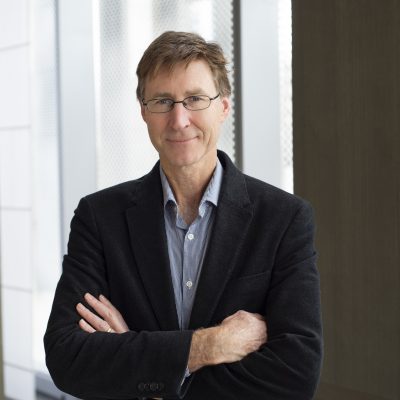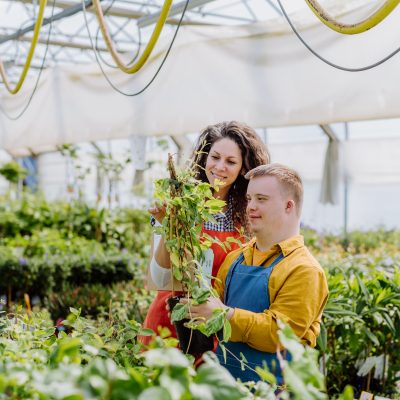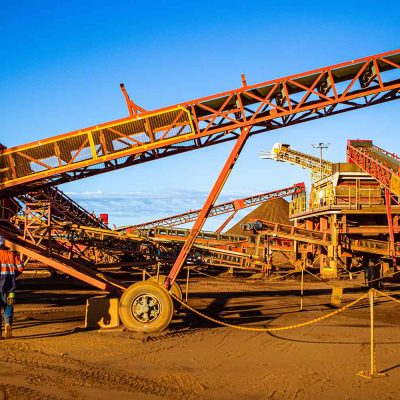Mike Dockery on what interests him about economics

Mike is a Principal Research Fellow at BCEC, researching labour market outcomes and the links between the larbour market and the wellbeing of workers and their families. His recent work looks at Indigenous wellbeing and labour participation.
What’s it like working at BCEC?
It may be because of my personality type, but I find BCEC a very stimulating environment to work in. I feel very lucky to have so much autonomy to pursue my own research interests and ideas, and we are all encouraged to focus on applied social issues that make a difference, which is important to me.
On some days, when I need to focus, I come in, vanish into my own world and barely exchange a word with Steven or Astghik sitting right next to me. But if someone has a question, we’re all suddenly engaged in intense debate, sharing ideas and references and contacts.
There’s always plenty of things going on around you – new projects, report launches, seminars and researcher visits.
For me, my role at BCEC provides a great balance of opportunity for internal focus and autonomy, camaraderie, external stimuli and to contribute as a team member.
What inspired you to become an economist?
I’d have to say it was more sheer luck (or fate?) rather than inspiration. I’m one of those many examples of how the teachers you get in school can make a profound difference to your destiny in life. I chose economics over accounting at the flip of a coin to round out my subject choices for Years 11 and 12 high school. I had a great teacher, but was more oriented towards doing something in the physical sciences.
After high school I was accepted into Science at that other institution North of the River, but took a gap year that turned into two gap years, working in the Kimberley and Kalgoorlie. When it came to finally enrolling at university, I reflected on how much I enjoyed economics in high school, and probably gained an appreciation for its applicability from the two years in the mining industry.
I think what most appeals to me about economics is that it can incorporate such a wide range of skills, from full-on technical theorising, modelling and mathematics, to qualitative observation and interpretation of human behavior, to normative and moral assessments.
It’s great that economists can specialise anywhere along those dimensions, but what I find most rewarding is bringing those skills together – either as an individual or in teams – to generate new insights.
Your research is centrally concerned with Indigenous wellbeing and labour participation. Tell us more about this.
So many aspects of the labour market really fascinate me. When we look at what goes on in the labour market, it reflects much more about our society and our own selves. Labour market engagement reflects what motivates us, gender roles and how households organise themselves. It impacts upon mental and physical health. The discipline’s embracing of studies based on subjective wellbeing (or happiness) data has generated so many intriguing questions.
If we are two to three times better off in material terms than our grandparents’ generation, why do we still work such long hours? What role does the education system play in passing on socio-economic advantage (or disadvantage) between generations? I have a list of papers in the making that will see me well past retirement!
It was from looking at outcomes from Indigenous employment programs as part of a 2003 Curtin post-doctoral fellowship that started me reading in depth about Aboriginal and Torres Strait Islander peoples, Australia’s history of colonisation and associated policies. It had a marked effect on me, and I remember being bewildered that I was taught almost nothing of that history in school.
Having now followed Indigenous affairs closely for many years and had the fortune to hear the personal stories of many amazing Indigenous Australians, I continue to be dismayed that our society remains so indifferent to the past and ongoing injustices Indigenous Australians face and our lack of appreciation of the value of their cultures. I believe my most important career contribution has been to provide empirical evidence of the positive effects of Indigenous cultural identity and engagement, in contradiction to the assumptions underlying many policies.
But there are so many critical issues that need addressing, such as incarceration, reforming Native Title, education access, governance issues and remote housing. I think constitutional recognition would be a great place to start.
Tell us about something interesting you are working on.
This is a tough question since, as my wife will attest, all my work is incredibly interesting and makes for riveting dinner party conversation. I have recently secured a grant from the Australian Housing and Urban Research Institute (AHURI) looking at how to measure household crowding, or ‘overcrowding’ as it is more commonly called. That grant application was motivated by work, as yet unpublished, suggesting Australian children typically live in houses that are too empty, rather than too crowded, in terms of what is optimal for their socio-emotional development.
The new project is a collaborative one involving both quantitative analyses and qualitative case studies to be conducted by researchers from the University of Adelaide, and I’m looking forward to delving deeper into how household occupancy or ‘density’ affects people’s wellbeing.
What support have you had to enable success in your career?
Given BCEC’s focus on gender equity, I should first and foremost acknowledge that I could not have achieved what I have in my career if, instead of my wife, I had taken on the role of primary carer (notwithstanding a brief period of paternity leave).
I’ve been very fortunate to secure extended research roles in several centres and institutes and to have worked with a number of Australia’s leading and emerging labour economists, notably through the auspices of the Centre for Labour Market Research. Successful collaborations are definitely critical to success in academia.
Another factor worth mentioning is the emergence early in my career of HILDA – the Household, Income and Labour Dynamics in Australia Survey – which has proven to be an invaluable resource for supporting social and labour market research in this country.
What key skills do you need to do your job?
As mentioned above, I think one of the great things about economics is that one can specialise in any of a range of skills. The critical part of my job is solving problems, and a key skill is getting to the core of a problem and then identifying methods to solve it. Having a good understanding of the range of analytical approaches and knowledge of available data sources is critical. It’s important to bring together teams of people with the right mix of skills, and doing that is a skill in itself.
For my role at BCEC, I think my key strength is an ability to isolate applied policy questions and work out how best to address them. Communication is the other critical skill – translating complex research findings into the key messages appropriate for different stakeholder groups.





